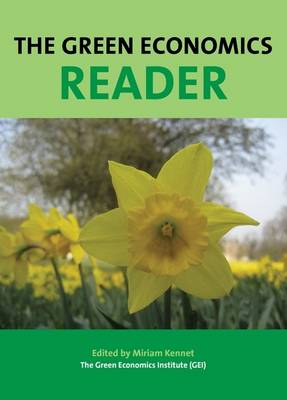Green Economic Reader
1 primary work
Book 1
The Green Economics Reader
by Miriam Kennet, Katie Black, and Michelle Gale D'Oliveira
Published 12 December 2011
The Green Economics Reader is a collection of essays, speeches and articles from leading green economists Green Economists, and also green professionals, and philosophers on environmental change, scientific theory and philosophy in Green Economics. Green Economics as a discipline is outlined and described, and provides the reader with well-thought out practical answers to existing and future problems by incorporating knowledge and complex interactions into an exciting and up to the minute understanding of the issues that the world is facing. The work of the Green Economics Institute (GEI) has given rise to the global movement known as Green Economics and the Green Economy. It was the aim and the achievement of The Green Economics Institute to turn the vision of a few campaigners and innovators into a massive global movement for change, one which has been taken up by almost all global transnational institutions and governments. This book is the first volume to bring these core ideas to the general reader and to provide an insight into the development, theory and features of Green Economics.Green Economics is based on a completely innovative assessment of the problems, options and solutions available to society, which is needed to deal with the challenges of the rapidly changing fragile and vulnerable physical and social environments, which we face.
It is a beacon of hope for addressing the related crises of climate, biodiversity loss, species extinction and the global economic downturn. Green Economics also highlights the need for a progressive approach, involving the complex mesh of both social and environmental justice, as the key to solving the economic problems of the Age of Austerity.
It is a beacon of hope for addressing the related crises of climate, biodiversity loss, species extinction and the global economic downturn. Green Economics also highlights the need for a progressive approach, involving the complex mesh of both social and environmental justice, as the key to solving the economic problems of the Age of Austerity.
